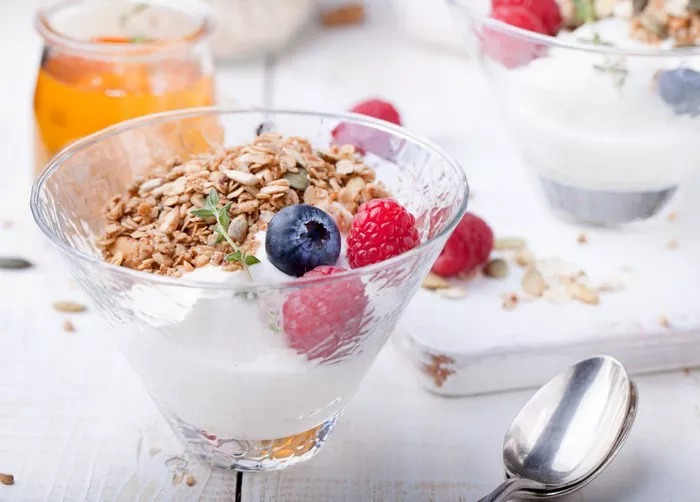Living with diabetes requires a careful balance of diet, exercise, and medication to manage blood glucose levels effectively. One of the most critical aspects of diabetes management is dietary control. Knowing which foods to avoid can help prevent blood sugar spikes and long-term complications. Here, we will explore the top 10 worst foods for diabetics, why they are detrimental, and what healthier alternatives can be considered.
1. Sugary Beverages
Sugary beverages, including sodas, fruit juices, sweetened teas, and energy drinks, are among the worst choices for diabetics. These drinks are high in simple sugars that are rapidly absorbed into the bloodstream, causing immediate spikes in blood glucose levels. This quick surge in sugar can overwhelm the body’s insulin response, making it difficult to maintain stable blood sugar levels.
Why Sugary Beverages are Harmful
- High Glycemic Index (GI): Sugary beverages have a high GI, leading to rapid increases in blood sugar.
- Empty Calories: They provide no nutritional value, only adding extra calories that can lead to weight gain.
- Increased Insulin Resistance: Regular consumption can worsen insulin resistance, a core issue in type 2 diabetes.
Healthier Alternatives
- Water: The best choice for hydration without any impact on blood sugar.
- Unsweetened Tea: Offers the benefits of antioxidants without added sugars.
- Infused Water: Adding slices of fruit, cucumber, or herbs to water can provide a refreshing flavor without sugar.
2. Refined Carbohydrates
Refined carbohydrates, such as white bread, white rice, and pasta, are stripped of their fiber and nutrients during processing. This results in a high glycemic index, causing rapid increases in blood sugar levels after consumption.
Why Refined Carbohydrates are Harmful
- Rapid Digestion: Without fiber, refined carbs are quickly broken down into glucose.
- Blood Sugar Spikes: Lead to high post-meal blood glucose levels.
- Poor Nutritional Value: Lack essential vitamins, minerals, and fiber.
Healthier Alternatives
- Whole Grains: Opt for whole wheat bread, brown rice, and whole grain pasta.
- Quinoa: A high-protein grain that has a lower impact on blood sugar.
- Legumes: Beans, lentils, and chickpeas are high in fiber and protein, helping to stabilize blood sugar.
3. Trans Fats
Trans fats are artificially created through the hydrogenation of vegetable oils and are commonly found in margarine, packaged snacks, baked goods, and fried foods. They are known for increasing the risk of heart disease, which is already higher in people with diabetes.
Why Trans Fats are Harmful
- Increase LDL Cholesterol: Raise bad cholesterol levels, contributing to cardiovascular disease.
- Decrease HDL Cholesterol: Lower good cholesterol levels, further increasing heart disease risk.
- Inflammation: Promote inflammation, which is linked to insulin resistance.
Healthier Alternatives
- Healthy Fats: Use olive oil, avocado oil, or coconut oil for cooking.
- Natural Nut Butters: Opt for nut butters without added hydrogenated oils.
- Homemade Baked Goods: Make baked goods at home using healthier fat alternatives.
4. Sugary Breakfast Cereals
Many breakfast cereals marketed as healthy are loaded with added sugars. These cereals can cause a sharp rise in blood sugar levels shortly after consumption.
Why Sugary Breakfast Cereals are Harmful
- High Sugar Content: Often contain more sugar than expected.
- Low Fiber: Lack the fiber needed to slow down sugar absorption.
- Artificial Ingredients: May contain artificial flavors and colors.
Healthier Alternatives
- Oatmeal: Opt for plain, unsweetened oatmeal and add fresh fruit or nuts.
- Greek Yogurt: Pair with a small amount of low-sugar granola and berries.
- Homemade Muesli: Mix whole grains, nuts, seeds, and dried fruit for a healthier breakfast option.
5. Baked Goods
Baked goods, including pastries, cakes, cookies, and doughnuts, are typically high in refined flour, sugar, and unhealthy fats. These ingredients make them particularly problematic for managing diabetes.
Why Baked Goods are Harmful
- High in Sugar: Contribute to rapid blood sugar spikes.
- High in Unhealthy Fats: Often contain trans fats or saturated fats.
- Calorie Dense: High in calories, leading to weight gain and increased insulin resistance.
Healthier Alternatives
- Homemade Treats: Use whole grain flours, natural sweeteners, and healthy fats.
- Fruit-Based Desserts: Enjoy baked apples, poached pears, or fresh berries.
- Dark Chocolate: Choose dark chocolate with at least 70% cocoa content for a lower sugar treat.
6. Candy and Sweets
Candies, chocolates, and other sweets are packed with simple sugars, providing little nutritional value while causing significant spikes in blood sugar.
Why Candy and Sweets are Harmful
- High Glycemic Load: Quickly raise blood glucose levels.
- Addictive: Can lead to overeating and poor blood sugar control.
- Nutrient Deficiency: Provide empty calories with no essential nutrients.
Healthier Alternatives
- Dark Chocolate: Opt for dark chocolate with lower sugar content.
- Fruit: Fresh fruit or dried fruit without added sugars can satisfy sweet cravings.
- Homemade Sweets: Use natural sweeteners like stevia or erythritol in homemade treats.
7. Processed Meats
Processed meats such as bacon, sausage, hot dogs, and deli meats are often high in unhealthy fats, sodium, and preservatives. They have been linked to an increased risk of heart disease and other health problems.
Why Processed Meats are Harmful
- High in Saturated Fats: Contribute to increased cholesterol levels.
- High in Sodium: Can lead to high blood pressure, a risk factor for diabetes complications.
- Chemical Additives: Contain nitrates and other preservatives that may have negative health effects.
Healthier Alternatives
- Lean Meats: Choose chicken, turkey, or lean cuts of beef and pork.
- Plant-Based Proteins: Include tofu, tempeh, and legumes.
- Homemade Options: Make your own sausage or deli meat using whole ingredients.
8. Full-Fat Dairy Products
Full-fat dairy products like whole milk, cream, and cheese can be high in saturated fats, contributing to higher cholesterol levels and increased risk of cardiovascular disease.
Why Full-Fat Dairy Products are Harmful
- High in Saturated Fats: Can raise LDL cholesterol levels.
- Calorie Dense: High in calories, which can lead to weight gain.
- Lactose Content: Lactose is a sugar that can affect blood sugar levels.
Healthier Alternatives
- Low-Fat Dairy: Opt for skim milk, low-fat yogurt, and reduced-fat cheese.
- Plant-Based Milks: Use almond milk, soy milk, or oat milk.
- Nutritional Yeast: Provides a cheesy flavor without the fat content.
9. Fried Foods
Fried foods, including French fries, fried chicken, and onion rings, are typically high in unhealthy fats and calories. The frying process often uses oils high in trans fats, making these foods particularly harmful for diabetics.
Why Fried Foods are Harmful
- High in Trans Fats: Contribute to heart disease and inflammation.
- Calorie Dense: Lead to weight gain and poor blood sugar control.
- Poor Nutritional Value: Often lack essential nutrients while being high in fat and calories.
Healthier Alternatives
- Baked or Grilled Foods: Use the oven or grill for a healthier cooking method.
- Air Fryer: Provides a crispy texture with less oil.
- Roasted Vegetables: Offer a nutritious and flavorful alternative to fried sides.
10. Alcoholic Beverages
Alcoholic beverages, especially those mixed with sugary mixers, can have unpredictable effects on blood sugar levels. Some types of alcohol can cause blood sugar to drop, while others can cause it to spike.
Why Alcoholic Beverages are Harmful
- Blood Sugar Fluctuations: Can cause both high and low blood sugar levels.
- High in Calories: Can lead to weight gain and increased insulin resistance.
- Liver Impact: Can interfere with liver function, affecting glucose metabolism.
Healthier Alternatives
- Moderation: If you choose to drink, do so in moderation and monitor your blood sugar levels.
- Low-Sugar Mixers: Use club soda or sparkling water instead of sugary mixers.
- Non-Alcoholic Options: Enjoy mocktails made with fresh fruit, herbs, and soda water.
See also:What is a balanced diet for people with prediabetes?
Conclusion
Managing diabetes effectively requires making informed dietary choices. Avoiding the foods listed above can help maintain stable blood sugar levels and reduce the risk of complications. By opting for healthier alternatives, diabetics can enjoy a varied and nutritious diet while keeping their condition under control. Remember, it’s essential to work with a healthcare provider or a registered dietitian to create a personalized meal plan that meets your individual needs and preferences.
Related topics:
How Many Carbs Should a Prediabetic Eat?

























